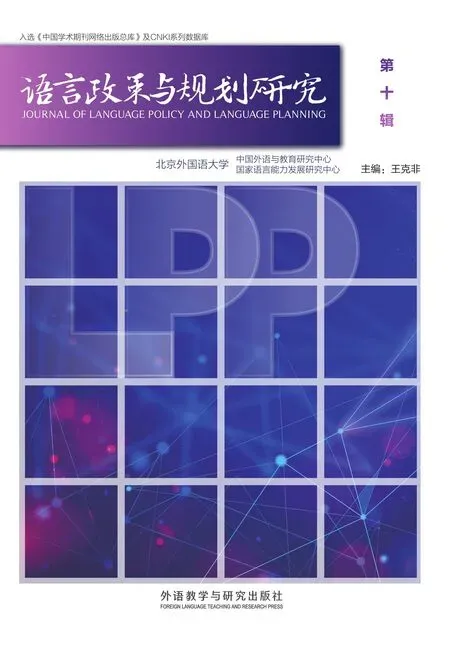Abstracts of Major Articles in This Issue
English translation strategy and the level of recognition of traditional Chinese technical terms
HUANG Xing; WANG Yiru
In this article, differences in the level of recognition in free translation, parody translation and transliteration of traditional Chinese technical terms are analyzed empirically. The analysis explains different contributions made by various languages to the concept of human technical terms as a whole. The differences in contribution lie in the orientation of translation, the signified in language, the concept and range it relies on, and the universal recognition of knowledge. Traditional Chinese technical terms are a part of tradition Chinese cultural terms. English translation strategy and the level of recognition of traditional Chinese technical terms is therefore an issue concerning global communication about “key concepts in Chinese thought and culture”.
Explorations of Pinyin beforeThe Plan of Chinese Pinyin
FENG Zhiwei
Pinyin has been used in China for a long time. In this article, the studies and movements of Pinyin before the issue ofThe Plan of Chinese Pinyinare listed and analyzed along with other relative matters.
A study on historical changes of Turkish language policy
GONG Yingyuan; LU Xiang
This article focuses on the historical changes of Turkish language policy, and explains the content, causes and influences of important language policies in different periods. This study finds that the status of the main national language Turkish has become increasingly official, authoritative and unique. Minority language policies,especially the Kurdish language policy, reflects Turkey’s flexible and pragmatic,changeable and contradictory attitude in the process of modern democratization to adjust its policies to meet the needs of the country. As an important node country of the “Belt and Road”, China should actively respond to the characteristics of the Turkish language policy and better serve the language needs and maintain national language security deployment in the “Belt and Road” construction.
A study of plain language development in Japan
HAN Tao
Plain Language emerged in the United States in the 1970s. In the late 1980s the Japanese government realized the importance of Plain Japanese and conducted a large amount of research. This paper reviews the development and evolution path of three kinds of Plain Japanese. Plain Language is also of great practical significance and has implications for the realization of China’s policies and regulations, and for the construction of a multicultural society, which should attract the attention of the relevant departments.
Basic foreign language education in Xinjiang: Status quo and solutions
MA Jun; WANG Wenbin
Based on investigations of foreign language education at the primary and secondary schools in the Southern Xinjiang, Northern Xinjiang and Urumqi, this paper describes and summarizes the present situations of basic foreign language education in Xinjiang.Suggestions are put forward with the purpose of providing guidelines for the relevant policy-making, improving the level of foreign language education in the local area, and solving the problem of imbalanced regional development of foreign language education in China.
Analysis of Luxembourg language education system and language education policy
LUAN Ting; FU Rong
Luxembourg, officially Grand Duchy of Luxembourg, is a landlocked country in western Europe. It is a typical multilingual and multicultural country, and language teaching is the most important and also most difficult part in Luxembourg’s public education system. Language teaching in Luxembourg starts early and provides more learning time and languages. Such language education greatly improves students’language ability, but also causes problems such as learning difficulties for immigrant students and lack of time for teaching other subjects. Since the beginning of the 21st century, the Luxembourg government has issued important documents such asLanguage Education Policy Profile of LuxembourgandReadjustment of language education: Action Plan 2007-2009, with a view to uniting all parties to reform language education policy in order to improve the efficiency of language teaching for the purpose of promoting social equity and social integration.
The historical evolution of Tanzanian language education policy
WEI Yuanyuan
As one of the national and official languages of Tanzania, Swahili has a very important position in the history of language education in East Africa. However,Tanzania’s official language education policy has changed in different historical periods.Reinforcing language planning, formulating and implementing language education policies in line with national conditions and connecting with the world are the major means of promoting the harmonious development of society and culture. Against this backdrop, it is necessary to have a comprehensive understanding of the history of the development and evolution of Tanzania’s language education policy.

